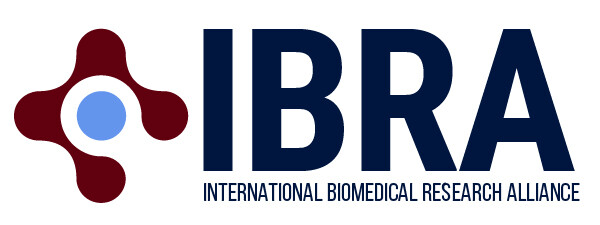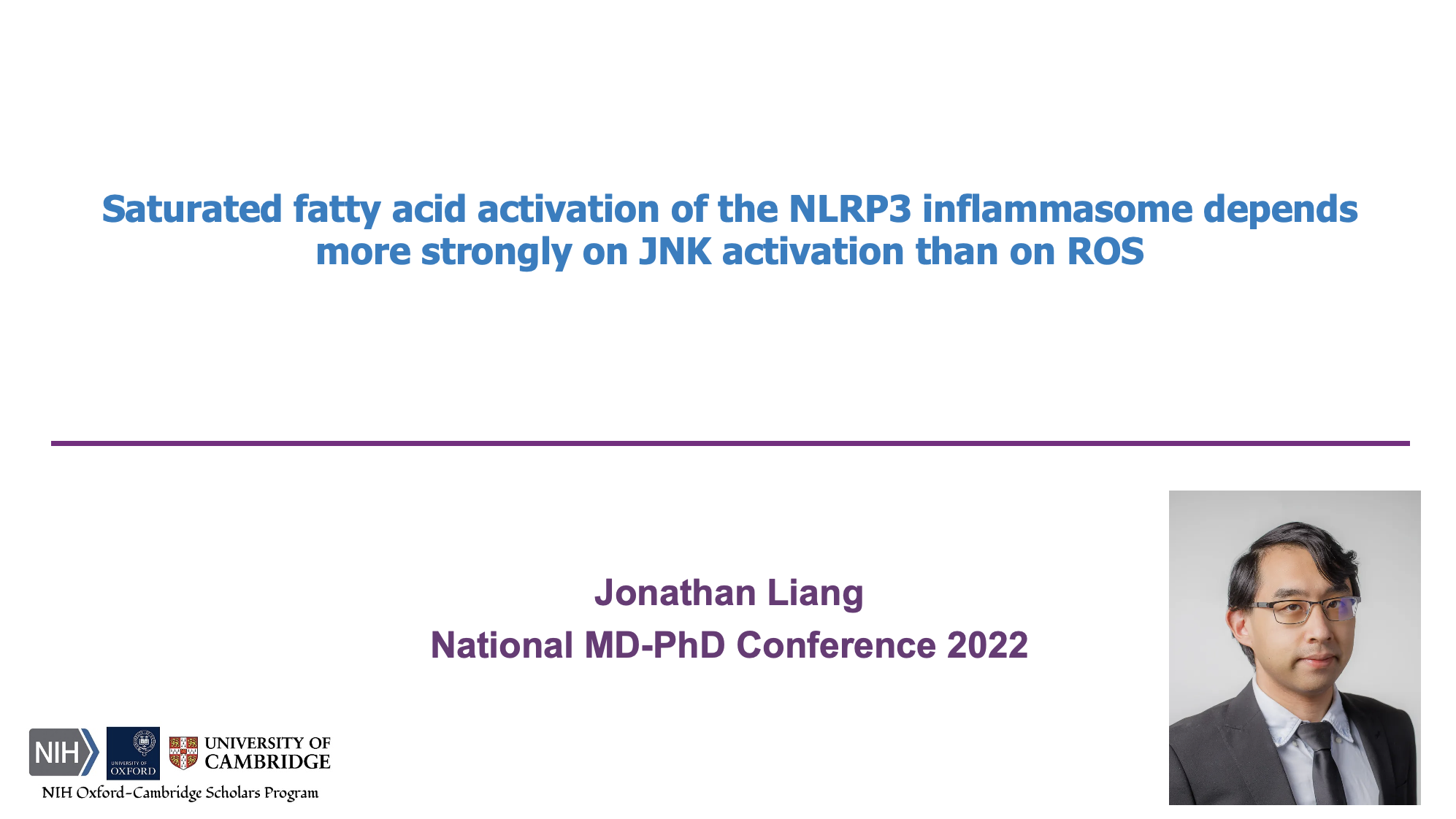The career of a physician-scientist is a unique one. Physician-scientists, also known as MD-PhDs, experience the passion of solving a patient’s medical struggles while pursuing research that may define the mechanism of that patient’s disease. This may ultimately translate into a clinical cure for the disease. The MD-PhD path integrates scientific and medical education and trainees have three different tracks for pursuing these degrees. The most common path (Track 1) is for students to begin their medical school training for two years, pursue their PhD for about four years, and then return to medical school for the final two years. Jonathan Liang shares his experience as an MD-PhD Scholar in the NIH Oxford-Cambridge Scholars Program and describes the benefits of the MD-PhD National Student Conference.
After his first two years of medical school at the Yale School of Medicine, Jonathan left behind his classmates and joined his PhD labs at the National Institutes of Health (NIH) and the University of Cambridge as a Scholar in the prestigious NIH Oxford-Cambridge Scholars Program. Jonathan shared that the path of an MD-PhD student can sometimes leave them feeling separated from their medical school classmates. However, he believed that MD-PhDs are still able to find community, which he experienced in the Scholars Program and at the 37th Annual MD-PhD National Student Conference in Copper Mountain, Colorado.
Jonathan’s path to this conference began nearly 15 years ago while he was in high school. As a student in Montgomery County, Maryland, he worked in the laboratory of Dr. John O’Shea studying mechanisms that control gene expression in T cells. As an undergraduate at Yale University, Jonathan worked in Dr. Ronald Breaker’s lab studying riboswitches, unique RNA-based sensors that bacteria use to regulate their metabolism. With the support of a Goldwater Scholarship, he then completed an MPhil at the University of Cambridge in computational biology. It was through this experience that he was introduced to the NIH Oxford-Cambridge Scholars Program. He joined theScholars Program as an MD-PhD Scholar where he would complete his medical training at the Yale School of Medicine and doctoral training at the NIH and the University of Cambridge.
During his PhD work, Jonathan returned to his immunology roots. He decided to study a different immune cell, the macrophage, under the joint mentorship of Dr. Iain Fraser at the National Institute of Allergy and Infectious Disease (NIAID) at NIH and Prof. Clare Bryant at the University of Cambridge. His work focused on how the NLRP3 inflammasome, an important inflammatory pathway in macrophages, is activated by saturated fatty acids. He has identified new connections between the NLRP3 inflammasome and other stress-sensing pathways that may be more direct sensors of excess saturated fat. In the future, this research could lead to more targeted treatments or preventative measures for people at risk of obesity-related diseases such as fatty liver disease and atherosclerosis. A number of projects in which Jonathan collaborated have been published as peer-reviewed articles (https://doi.org/10.1371/journal.ppat.1009395, https://doi.org/10.1126/scisignal.abe0387), and further publications are forthcoming.
At the Annual MD-PhD National Student Conference, Jonathan met more than 100 fellow MD/PhD students at all stages of their training. In the beautiful setting of the Colorado mountains, this diverse group exchanged scientific ideas, advice about finishing the PhD, and stories of spectacularly failed experiments. After delivering his scientific talk, Jonathan was particularly excited to meet some fellow macrophage scientists with whom he discussed ideas for specific experiments and potential new collaborations. Yet not all the conversation was related to science. During social events such as the Saturday evening dinner, the conversation ranged from stories of late nights in the medical wards to favored board games and sports. In addition to students, conference attendees included faculty from residency programs who hosted panels and small-group discussions about the transition to residency and the path ahead for physician-scientists. Jonathan and the other later-stage students at the conference received valuable guidance about their upcoming applications.
In recent months, Jonathan has returned from his doctoral research to medical school to pursue the final stage of his MD-PhD training, the advanced clinical electives. He is in the process of applying for a residency position in pediatrics, where he plans to use his background in immunology to treat children with inflammatory diseases such as juvenile-onset lupus. In addition, he hopes to maintain an active research practice with a focus on the origins of non-infectious inflammatory diseases. He is excited about this upcoming new stage of his training and equally excited to see future NIH Oxford-Cambridge Scholars attend the Annual MD-PhD National Student Conference to benefit from it as he did.

